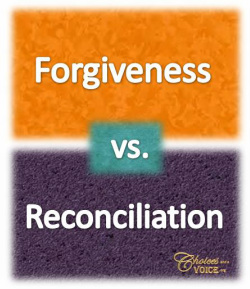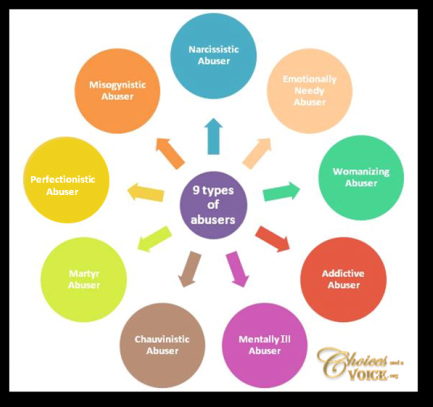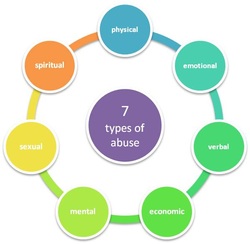 While on vacation here in Cannon Beach, Oregon I could not help but ponder my life and how much of it is centered on busyness. While basking in the sun on this beautiful beach I thought of the scripture passage where Jesus gives his Sermon on the Mount to his disciples in Matthew chapters 5-7. I wondered how much more time I should spend listening to Jesus on the “mountainside” instead of wasting time in the busy “marketplace” of my life! In this passage Jesus is teaching his disciples on the mountainside. I read this passage over and over and I kept coming back to the beginning of The Beatitudes in Matthew 5:3 where Jesus says to his disciples, “Blessed are the poor in spirit, for theirs is the kingdom of heaven.” What exactly is “poor in spirit?” I’ve heard many Christians explain it as meaning people who are physically poor, destitute, and poverty-stricken. Some people even misquote this verse as “Blessed are the poor……” But it clearly reads “poor in spirit.” I believe that Jesus is saying that in order for us to enter the kingdom of heaven, we must humbly acknowledge that we are spiritually poor, destitute and in desperate need of a savior. We must come to the realization that we cannot make it into the kingdom of heaven on our own, by our own works (Ephesians 2:8-9). We must admit that we are a sinner and fall short of the glory of God. When we humble ourselves and become “poor in spirit,” it is then, and only then, that we can receive God’s gift of salvation because of the death and resurrection of His sinless Son Jesus Christ on the cross, in which he took our place and punishment for our sins in order for us to be reconciled with God. We receive God’s free gift of salvation through our faith in Him. When we believe in the name of Jesus Christ and receive God’s Holy Spirit to dwell in us, we are saved and will spend eternity with Him in the kingdom of heaven. God through the prophet Isaiah explains “poor in spirit." In Isaiah 66:2 (NIV) the LORD God says, “These are the ones I look on with favor: those who are humble and contrite in spirit, and who tremble at my word.” The word ‘contrite’ means: feeling or showing regret for bad behavior and sorrow and remorse for a sin or shortcoming. In other words “poor in spirit” is acknowledging you're a sinner and having remorse for your sin, which is the beginning of repentance that leads to salvation and favor with God. I have heard people tell me that when they have attended a 12-Step Program, such as AA, that the first step is acknowledging that you have a problem, which is necessary before you can be helped. It is the same with salvation in Christ. We must admit we have a problem and need help from our Savior Jesus Christ. The best example in the Bible that I can think of to describe “poor in spirit” is when Jesus told the parable of the Pharisee and the tax collector praying in the temple in Luke 18:9-14. Jesus explains how the sinful tax collector was the one who went home justified, not the religious Pharisee who was a teacher of the Law. The tax collector (in vs. 13) would not even look up to heaven, but beat his breast and said, “God, have mercy on me, a sinner.” This is “poor in spirit.” I want to daily become poor in spirit and humbly ask God for forgiveness and repent from my sins. In turn I want to forgive others as God has so graciously forgiven me.
0 Comments
 I hear many people (Christians and non-Christians) refer to all the people in the world as “children of God.” Are we all children of God? I have heard it so many times, even in various bible studies I attend, that I decided to do a post on it. In John 1:12 (NIV) the Apostle John says, “Yet to all who did receive him, to those who believed in his name, he gave the right to become children of God.” Therefore all who receive Jesus Christ and believe in his name, the right to become a child of God is given to you by Jesus Christ, the Son of God and Savior of the world. In Romans 8:14 (NIV) the Apostle Paul says, “For those who are led by the Spirit of God are the children of God.” Therefore when we receive Jesus Christ, his Holy Spirit comes to dwell in us and we are led by his Spirit. Our lives should reflect this by evidences of the Fruit of the Spirit mentioned in Galatians 5:22-23. If we don’t have any of these nine fruits of God’s Holy Spirit evident in our lives, are we really children of God? These nine fruits of the Spirit listed in Galatians are how people will know we are Christians (children of God). The Apostle Paul says in Galatians 5:22-23, “But the fruit of the Spirit is love, joy, peace, forbearance, kindness, goodness, faithfulness, gentleness and self-control. Against such things there is no law.” So if we believe in Jesus Christ as our Savior and Lord and receive his Holy Spirit how will we really know we are children of God? The Apostle Paul says further in Romans chapter 8:15-17 that, “The Spirit you received does not make you slaves, so that you live in fear again; rather, the Spirit you received brought about your adoption to sonship. And by him we cry, “Abba, Father.” The Spirit himself testifies with our spirit that we are God’s children. Now if we are children, then we are heirs—heirs of God and co-heirs with Christ, if indeed we share in his sufferings in order that we may also share in his glory.” Does God’s Holy Spirit testify with your spirit that you are His child? If not, today is the day of salvation! For additional study on "children of God," here are additional scripture in the Bible that speaks about children of God: Luke 20:36 John 1:12 John 1:13 John 8:41 John 11:52 Romans 8:14 Romans 8:17 Romans 8:19 Romans 8:21 Romans 9:8 Romans 9:26 Galatians 3:23 Galatians 3:26 Philippians 2:15 1 John 3:1 1 John 3:2 1 John 3:10 1 John 5:2 1 John 5:19 Hebrews 12:4-13 Note: The term "children of God" is only listed in the New Testament. I did not find any scripture in the Old Testament that talks about "children of God." The OT refers to children of Israel or God's chosen people, but not children of God.  There are many misconceptions regarding forgiveness. Some Christians believe that if there is not reconciliation, then forgiveness has not taken place. Some people believe that forgiving means “forgetting” the offense and having “feelings” of forgiveness. Forgiveness is a choice, and has nothing to do with our feelings or our memory of the offense. The Bible requires us to forgive others in order for God to forgive us. Matthew 6:14-15 says, “For if you forgive other people when they sin against you, your heavenly Father will also forgive you. But if you do not forgive others their sins, your Father will not forgive your sins.” There are several things that forgiveness is not. First of all forgiveness is not forgetting what happened. There is the common cliché “to forgive and forget.” The truth is we may never forget certain offenses that have happened to us for the rest of our lives. However we can decide not to bring it up over and over again. When God forgives us he chooses to never bring it up and hold it against us again. Psalm 103:12 says, “as far as the east is from the west, so far has he removed our transgressions from us.” Those who actually forget offenses could possibly be repressing or denying what actually happened. We should acknowledge what happened, but simply choose not to relive the experience for our own benefit. Forgiveness also is not excusing or condoning. Excusing an offense is claiming that the offender is not to blame. Condoning is claiming that it is okay that they committed the offense. Forgiveness is not minimizing or justifying what was done. Forgiveness also does not mean denying the damage that has occurred and the feelings that the offense caused. We can express our emotions in non-hurtful ways, such as with a counselor, mentor or friend. Forgiveness is definitely not risking victimization or allowing further harm to occur. You can forgive someone and still take healthy steps to protect yourself, including choosing not to continue the relationship. For example, women who are victims of domestic violence should not remain in a relationship with someone who physically abuses them or their children. They are obligated to get their children and themselves to safety. They do not need to immediately file for divorce. They can remain legally separated for safety reasons and wait to see if their partner repents and changes. If there isn’t evident “fruit on the tree” proving change has occurred, one should not return to their abusive partner. However, some churches counsel women in domestic violence situations in ways that put them in harm’s way. Some churches will claim that divorce or separation is not biblically permissible in cases of physical abuse. They will sometimes even claim that a woman must simply pray harder for her “prodigal partner” and then if they have enough faith God will change their partner. This is spiritual abuse. People have free choice and they must want to change. We can never change anyone by simply praying harder. Forgiveness is not reconciliation. Reconciliation requires all parties involved to work together to rebuild the relationship. Forgiveness only requires one person. It is something that takes place within us. It does not require us to contact the offender and initiate anything with the offender. In some cases the offender may be deceased. Forgiveness can take place without rebuilding or re-entering the relationship. If we choose to re-establish the relationship we should have wisdom and decide if the relationship is safe (mentally, emotionally, physically or spiritually). Forgiveness does not involve enabling, rescuing or neglecting justice. These are traits of codependency. We should allow natural consequences to occur for our offender. Some offenders will try to manipulate and guilt-trip their victims into rescuing them from natural consequences such as trying to get a victim to go to court to abolish a protection order. This simply allows the offender to bypass consequences. It is not unforgiving to allow natural consequences to occur. Justice is separate from forgiveness. A victim can pursue their rights for justice with or without forgiving their offender. If justice is granted, sometimes forgiveness is easier. However if justice is denied, we can be more prone to seek our own vengeance. We need to trust God to implement His justice. We need to get out of the way between our offender and God. Romans 12:19 says, “Beloved, never avenge yourselves, but leave it to the wrath of God, for it is written, 'Vengeance is mine, I will repay, says the Lord.’” Clearly this is easier said than done. So what is forgiveness? Forgiveness is simply releasing the offender. Psychologist Sonja Lyubomirsky calls forgiveness “a shift in thinking” toward someone who has wronged you, “such that your desire to harm that person has decreased and your desire to do him good (or to benefit your relationship) has increased.” Forgiveness in the Oxford English dictionary is a noun and it means “the action or process of forgiving or being forgiven.” The word “forgiveness” in Greek is aphieeme, which means “to send off,” “to release,” or “to let go.” Lynn Ponton, M.D. in her article, What is Forgiveness? states that “Forgiveness is letting go of the need for revenge and releasing negative thoughts of bitterness and resentment.” It involves a decision to not continually speak of or relive the offense. If you are like me you are prone to continually rewind the tapes in your mind! We need to choose not to talk about it to others (with the motive to cause harm to our offender). We also need to choose not to talk about it to ourselves. Bad-mouthing our offenders to others and to ourselves through negative self-talk will cause bitterness that will destroy us (mentally, physically and spiritually). We need to replace these negative thoughts and words with positive ones. Philippians 4:8 says, “Finally, brothers and sisters, whatever is true, whatever is noble, whatever is right, whatever is pure, whatever is lovely, whatever is admirable—if anything is excellent or praiseworthy—think about such things.” Replacing negative thoughts with positive ones about offenses done to us will prevent bitterness and resentment. Forgiveness is necessary for healing. It prevents the offense from having power over us. This task of forgiveness is something I personally have to work on daily; it doesn’t come naturally for me. I try to always remember that forgiveness is a gift we give to ourselves. If you need healing from hurts or past abuse or simply encouragement and positive friendships from other women, contact us to enroll in a Journey To Joy Friendship Group near you! Blessings to you on your journey to joy! Works Cited: Ponton, Lynn, MD. What is Forgiveness? Psych Central. http://psychcentral.com/lib/what-is-forgiveness/000965,2007. Lyubomirsky, Sonjy. The How of Happiness: A New Approach to Getting the Life You Want. New York: The Penguin Group, 2007.  As I walked up the straight and narrow passage on the old wooden squeaky steps, I noticed that the wood on each step was heavily worn by those who had walked this same path. There was a musty smell that I have never forgotten. It was a good smell though. I was clenching the handrails on both sides so tightly with fear. I finally reached the top. I adjusted my red and white wool dress that my mother had picked out for me. I began to descend down another stairwell into a large tank of barely lukewarm water. I began to shiver as I entered, but I proceeded. I reached the middle of the tank. To my left on the wall was a beautifully painted scenery of calm waters with sunlight shining through. It was surrounded by meadows and trees. It seemed very peaceful to me. To my right was an audience of people sitting in old wooden pews staring at me with pleasant smiles on their faces. I didn’t see my family, only strangers. A very kind old man with grey hair greeted me in the water and smiled. I barely knew him. He was the pastor. It was a cold wintery Sunday morning on January 7, 1973 in Spokane, Washington. I was nine years old. I had never been to a church before this. I had never seen a bible nor sang a hymn. I thought Jesus Christ was a cuss word. He wasn’t. He was the King of Kings and the Lord of Lords, who was now in my heart. “This baptism signifies the beginning of a new life for you,” Preacher Vaughn said. It definitely was.  Jesus warned his disciples in Luke 9:23 that “any one (who) would come after me….must deny himself and take up his cross daily and follow me.” Jesus appears to have issued this call on at least three different occasions. In John Koessler’s book, True Discipleship, he says that “The cross is the most recognizable symbol of the Christian faith.“ He also says “the message of the Cross is at the center of the Christian faith, it is the life of the Cross that is at the heart of Christian discipleship.” Jesus calls us to deny ourselves and take up our cross daily. What does this mean? Koessler writes that “God is not satisfied with anything less than everything.” In Matthew 10:37-38, Jesus said, “Anyone who loves their father or mother more than me is not worthy of me; anyone who loves their son or daughter more than me is not worthy of me. Whoever does not take up their cross and follow me is not worthy of me." In Luke 14:26-27, Luke recounts Jesus’ words much stronger than Matthew by saying, “If anyone comes to me and does not hate father and mother, wife and children, brothers and sisters—yes, even their own life—such a person cannot be my disciple. And whoever does not carry their cross and follow me cannot be my disciple.” Koessler writes that the “hatred spoken of in this passage is by way of comparison. It is a hyperbolic language meant to drive home our obligation to love Christ more than any other and to defer to Him in all our decisions.” We are to "count the cost" of discipleship. Jesus compares counting the cost of discipleship to a man who builds a tower or a king who plans to go to war with another king (see Luke 14:28-32). Koessler says that “both would estimate the potential cost of such a project before embarking on it.” Why does Jesus want us to count the cost before following him? Jesus wants followers who will go the distance, not quit the race halfway through. Jesus guarantees that if we pick up our cross daily and follow him that it will not be easy. The cross itself represents persecution, torture, shame, abandonment and rejection. So if we are to pick up our cross daily and follow Jesus, that means we must anticipate shame, persecution, rejection and possibly martyrdom. We must count the cost and be willing to still follow even if it means we must go through what Jesus went through. We must love him enough to follow him no matter what the cost. Picking up our cross to follow Jesus will include handling temptation, learning to avoid temptation by understanding the stages of temptation. The first stage is desire (James 1:14). Koessler says that “sin always promises more than it can deliver.” We see that in the story of the Garden of Eden. Satan (the serpent) promised Adam and Eve lies. Koessler says, “The stage of desire is the point when we need to look beyond the initial false promises of temptation and ask ourselves some important questions.” James, the brother of Jesus, described the second stage of temptation as conception: “Then, after desire has conceived, it gives birth to sin” (James 1:15a). This is the stage where we rationalize sin, rather than flee from it. Why do so many people who profess to be Christians live as though they are slaves to sin? They don’t have to. We are commanded not to. Koessler says that “it is because they offer themselves to the flesh in voluntary slavery.” He concludes saying that “All who would be Christ’s disciples must bear the cross. Yet all who do, find to their eternal joy that it is really the cross that bears them.”  As a follower of Jesus Christ, do people perceive you as being different than others who are not followers of Jesus Christ? If we are true disciples, we will be noticeably different than those who are not. Jesus said that true disciples will be recognizable by the fruit they produce (Matthew 7:16-17). In John Koessler’s book, True Discipleship, he writes that the first mark of true discipleship is baptism. Koessler states, “It is one of the first acts that identifies us as followers of Jesus Christ and initiates us into a life of obedience.” In Matthew 28:19-20 when Jesus gave us his Great Commission he said, “Therefore go and make disciples of all nations, baptizing them in the name of the Father and of the Son and of the Holy Spirit, and teaching them to obey everything I have commanded you. And surely I am with you always, to the very end of the age.” John Calvin called baptism “the sign of the initiation by which we are received into the society of the church.” Calvin also said that “it is the mark by which we publicly profess that we wish to be reckoned God’s People, by which we testify that we agree in worshipping the same God, in one religion with all Christians; by which finally we openly affirm our faith.” Baptism on our part as followers is that of a “pledge of good conscience toward God” (1 Pet 3:21). Baptism on God’s part is an implied promise of forgiveness (Acts 2:38, 22:16; Mark 1:4, Luke 3:3). Koessler writes, “When some in the Corinthian church began to boast about who had baptized them and divide into factions in the name of their favorite apostle, Paul wrote that he was glad that he had baptized so few. “The apostle Paul says in I Corinthians 1:17, “For Christ did not send me to baptize, but to preach the gospel—not with wisdom and eloquence, lest the cross of Christ be emptied of its power.” Koessler says that “Such a statement makes no sense if baptism is the means of obtaining forgiveness through Christ.” Baptism is not a requirement for salvation. Baptism is a public proclamation to all that we have chose to follow Jesus Christ. Jesus said in Luke 9:26 that “Whoever is ashamed of me and my words, the Son of Man will be ashamed of them when he comes in his glory and in the glory of the Father and of the holy angels.” When we are publically baptized we are showing others that we are not ashamed to be a follower of Jesus Christ. Baptism symbolizes the believer’s decision to partake in Jesus’ burial and resurrection. As believers we die to self and live a new life in Christ. The additional marks of a true discipleship are obedience, abiding fruit and love. The second major part of Jesus’ Great Commission to all of his disciples was to teach others “to obey everything I have commanded you” (Matthew 28:20). Obedience is definitely the true test of discipleship. Jesus said in John 8:31 (NIV), “If you hold to my teaching, you are really my disciples.” Jesus did not say that we become his disciples if we hold to his teaching, but we are true disciples if we do. Koessler says, “discipleship comes before obedience.” Obedience is therefore the result of truly being a disciple, but it is not the cause. Koessler states that “there are two kinds of obedience, legalistic obedience and grace obedience. Legalistic obedience is rooted in human effort and achievement. Obedience that is rooted in grace comes from faith (Romans 1:5, 4:5). Grace-rooted obedience recognizes that righteousness can only be received as a gift, the gift of the Holy Spirit. It cannot be earned as a wage. Obedience to God is our expression of gratitude for his gift of his Holy Spirit to us. If we abide in Jesus Christ we will have spiritual fruit. So what is spiritual fruit? Galatians 5:22-23 (NIV) tells us exactly. It is love, joy, peace, forbearance, kindness, goodness, faithfulness, gentleness and self-control. In John 15:7-8 (NIV) Jesus said, “If you remain in me and my words remain in you, ask whatever you wish, and it will be done for you. This is to my Father’s glory, that you bear much fruit, showing yourselves to be my disciples.” Just prior to that Jesus described his relationship with his disciples as that of a vine. He said in John 15:5 (NIV), “I am the vine; you are the branches. If you remain in me and I in you, you will bear much fruit; apart from me you can do nothing.” Many disciples will appear to be true followers of Jesus. They may prophesy, cast out demons and even do miracles, but Jesus said in Matthew 7:21-23 (NIV), “Not everyone who says to me, ‘Lord, Lord,’ will enter the kingdom of heaven, but only the one who does the will of my Father who is in heaven. Many will say to me on that day, ‘Lord, Lord, did we not prophesy in your name and in your name drive out demons and in your name perform many miracles?’ Then I will tell them plainly, ‘I never knew you. Away from me, you evildoers!” The key is to ‘remain’ or ‘abide’ in Christ. We must be connected to Jesus, the vine, in order to do the Father’s will. I have witnessed so many Christians involved in ministry that had their pride at the forefront. They wanted to be recognized as the church’s most outstanding ‘soul winner’ or they wanted recognition in front of the church body for every task (leading bible study, teaching VBS, singing in the choir, etc.) they were involved in. Jesus says we must die to ‘self,’ not promote self. In John 12:24 (NIV) Jesus said, "I tell you the truth, unless a kernel of wheat falls to the ground and dies, it remains only a single seed. But if it dies, it produces many seeds. The man who loves his life will lose it, while the man who hates his life in this world will keep it for eternal life." Jesus is saying that we must be like a seed. As a gardener, I gather all the seeds from all my plants in my back yard, mostly flowers, and dry them so I can replant them and produce an entire garden of flowers. A seed must completely die in order to be planted and reproduce and multiply. We are the same way. In order for God to use us in ministry for him, we must die to ‘self’ and when we do, he is able to use us in ministry for him to multiply his kingdom by winning souls. If we do not die to ‘self,’ then we are like those who Jesus speaks of in John 12:24 that are doing ministry but they do not know Jesus. They are not connected to the true vine. Therefore they may appear to be producing fruit, but they are doing it for their own glorification, not God’s glory. Finally, the last mark of a disciple is love. So what does love look like? ! Corinthians 13 gives us the outline. Koessler says that love “ is reflected more in what we do than in how we feel.” Love pertains to our actions, not our feelings. He says that, “Love, like faith, involves an exercise of the will.” Our love also, must go beyond words. In James 2:15-17 (NIV), James, the brother of Jesus, said, “Suppose a brother or a sister is without clothes and daily food. If one of you says to them, “Go in peace; keep warm and well fed,” but does nothing about their physical needs, what good is it? In the same way, faith by itself, if it is not accompanied by action, is dead.” The key is not to try harder to obey Jesus, but to live closer to Jesus Christ. We must abide in him and his words (the scripture). Then we will know the truth (Jesus Christ) and the truth will set us free (John 8:32).  The Narcissistic Abuser- This type of abuser is obsessed with self; he worships self, promotes self, photographs self, looks at self (and wants others to look at him) and constantly thinks about self; he is overly concerned with his looks, talents, image and will do anything at any cost to uphold his image, even if he must lie to protect his image; he is overly concerned with receiving praise and adoration; he loves and thrives off of attention, especially if he is also charismatic; he usually does not prefer a partner that is outgoing and charismatic, in that it takes away from his attention. He can be very selfish, self-absorbed and inconsiderate; when socializing with him he usually only wants to talk about himself, his accomplishments, his pain, his talents, his injustices, and if the conversation shifts toward you or someone else, or if you begin to share something personal about yourself, he usually gets bored and uninterested and is only thinking about how to get the conversation back on him; he usually is the opposite of the ‘emotionally needy abuser’ in that he feels that he can replace you at anytime with someone else; he is only interested in his relationship with you or others if it benefits him somehow; he may behave as a good parent to his biological offspring in that he perceives them as an "extension of himself" (which I would term indirect narcissism); he believes that life is all about making sure one "has happiness" (rather than "has honor"), even if obtaining one's own happiness may result in many other people suffering unhappiness (i.e. leaving his spouse for another woman even though that would cause his wife and children pain); he usually possesses several of the traits of the other abusive categories as well; he can be verbally, physically, emotionally, financially, economically, and spiritually abusive. The Emotionally Needy Abuser- This type of abuser usually lacks self-esteem and derives his self-worth from the relationship; he tries to isolate his partner; he is very jealous when his partner spends time with other friends/family; he can become very possessive, clingy, and one of his greatest tools is guilt-tripping and manipulation; if emotional abuse is not successful then he will resort to verbal or physical abuse to keep his partner only to himself. He feels that he can’t live without his partner. He may claim that “you are his soul mate,” or “you are meant to be together forever,” or even may claim that “God has revealed to him that you are to be together.” He will try to convince his partner that no one will or could ever love them as much as he will. He is consumed with jealousy and fear of losing his partner. He makes his partner feel responsible for his happiness. He can be hypersensitive and cry easily; he usually seeks out a codependent partner who is emotionally stronger than he is and one who will be doting, forgiving and tolerant of him; he can be verbally, physically, emotionally, financially/economically, and spiritually abusive. The Womanizing Abuser- This type of abuser can be extremely arrogant and unfaithful to his partner; he is overly consumed and sometimes addicted to flirting with and seducing other women, he can be very charismatic, but not always; he derives his self-esteem from other woman reciprocating his advances; he may or may not be good-looking; he has very low self-esteem; he claims that he is not flirtatious, but it’s 'just his personality’ therefore he’s done nothing wrong; he can be skilled at lying and manipulating; he is usually insensitive to his partner’s needs, emotions, hurts, and will rarely validate her feelings; he usually is quite the smooth-talker and can easily lie his way out of anything; his image is of great importance to him; he may regularly accuse his partner of cheating on him over something as trivial as she decides to wear lip stick one day; this can be a red flag that he is cheating on you; he tends to lack empathy (understanding and feeling another person's emotions and relate to their experiences); he can be verbally, physically, emotionally, financially/economically, and spiritually abusive. The Addictive Abuser- This type of abuser has one or many addictions, such as pornography, sex, drug/alcohol use, gambling, eating, spending, etc.; he is usually ashamed of his addiction(s) and will go to extreme lengths to cover up and hide his behaviors; he can be skilled at lying and manipulating; he can be easily angered and volatile when substance abuse is involved; he is usually impulsive and rarely exercises self-control; he believes that getting his needs and desires met are of utmost importance; he can be reckless and enjoy taking risks; he may continually make promises to quit his addictions, but without professional long-term treatment, it will not likely happen; he can be verbally, physically, emotionally, financially/economically, and spiritually abusive; The Mentally Ill Abuser- This type of abuser can have a dual personality and mood disorders; he may frequently have unpredictable highs and lows (manic and depressive stages), he can be clinically depressed. If he has Obsessive Compulsive Disorder (OCD) it can cause him to continually call/text to keep tabs on you. Anxiety can cause him to be consumed with fear of abandonment and losing his partner; bipolar disorder, borderline personality disorder and various other disorders can also be present; he can be hypersensitive and cry easily or he can be easily angered and prone to rage; he usually blames his partner for his abuse; even if he is on prescribed medication(s) he can still be dangerous, and in some cases more dangerous to himself or others if he recently switched medications or quit taking his medications; he can be verbally, physically, emotionally, financially/economically, and spiritually abusive. The Chauvinistic Abuser- This type of abuser thinks that he is superior to his partner. He believes his rights should always prevail; he is very controlling; he lacks empathy and compassion; he can frequently humiliate and degrade his partner without remorse; he will rarely ever apologize and usually will never admit to fault; he blames his victim for his bad behavior (i.e. that he would not have been abusive if his partner had not mouthed-off to him, therefore it was her fault); he usually have many of the traits of the Narcissistic Abuser and/or Mentally Ill Abuser, etc.; he can be verbally, physically, emotionally, financially/economically, and spiritually abusive. The Martyr Abuser- This type of abuser thrives off of pity and sympathy from others and will even lie to portray themselves as a victim; he may have been raised by a highly doting mother that excused his bad behavior; he may even stage his own suicide or threaten suicide for attention; he blames others for his bad behavior; he may easily apologize every time for his abuse and claim it will never happen again, but he rarely changes or gets the help he needs; he is a smooth-talker and can easily persuade his partner into believing him; he can be hypersensitive and cry easily; he is very emotionally abusive and manipulative; his greatest tool in emotional abuse is guilt-tripping his partner; he usually falls into more than one of the other types of abusers as well; he can be verbally, physically, financially/economically, and spiritually abusive. The Perfectionistic Abuser- This type of abuser demands perfection in his partner; he is very intolerant, impatient and condescending at times to others, especially his partner; he will engage in ridicule and humiliation to get his partner to comply; he may complain about his partner’s performance, whether it be about her cooking, cleaning, parenting, driving, shopping, body weight, work ethic, intelligence or even may critique her sexual performance. The victim will end up having extremely low self-esteem after being subjected to this type of abuser; this abuser has low self-esteem as well and feels better about himself when he degrades his partner; he rarely apologizes, in that he believes he is always right; he is very critical and judgmental toward his partner and others; he has unrealistic expectations of his partner; he can be verbally, physically, emotionally, financially/economically, and spiritually abusive. The Misogynistic Abuser- This is the most dangerous type of abuser; a misogynist is a man who hates women, and there can even be Christian/religious men who hate women; this type of abuser will engage in many tactics to hurt, destroy, humiliate, isolate, alienate, control, and manipulate his partner. A misogynist has no empathy, sympathy or compassion; he will not show concern for his partner even when she has a severe illness/injury and may refuse her hospitalization or basic care; he is controlling in every area of his partner’s life, such forcing her to have natural child birth without any pain medication or requiring that he approve every one of her friendships; he sees women as having no value except to serve a man; many extreme religious cults attract misogynists; if he is involved in a religious cult, he will distort scripture to justify his bad behavior (i.e. distorting scripture on submission); a misogynist will not apologize or admit fault, therefore they never change their behavior, in that they believe they have never done wrong; they will not validate their partner’s feelings or emotions; they enjoy degrading their partner and if their partner shares that she has been hurt and humiliated by them publicly, the misogynist will deny it and blame his partner and claim that she is overly sensitive and it is not his fault that she is hyper-sensitive; he is cold, calloused and highly self-absorbed; he can be extremely verbally, physically, emotionally, financially/economically, and spiritually abusive.  Are you in an abusive relationship that involves one or more types of abuse? If so, you may want to join one of our Journey to Joy Support Groups for women who are victims of abuse. 1. Physical abuse – blocking you from leaving a room, grabbing you, forcing you to look at him by grabbing your face, kicking, punching, slapping, choking, biting you, pulling or grabbing your hair, ripping your covers off in the middle of the night and forcing their demands on you, making threats against you (verbally or with weapons), throwing objects, breaking things, punching walls or kicking doors, driving recklessly, confining or isolating you, or hurting pets or your children to punish you. 2. Emotional abuse – intimidating, insulting, degrading, shaming, humiliating, embarrassing you, being condescending, not listening to you, talking over the top of you, disrespecting you (privately or publicly), making threats toward you, being possessive and overly jealous, being controlling, invading your privacy, spying on you, accusing you of bad behavior (infidelity and cheating) that they are usually engaged in. 3. Verbal abuse - screaming, yelling, swearing, name calling, interrupting, mocking, intimidating, humiliating you with abusive language and derogatory remarks. 4. Economic abuse – withholding money from you, not allowing you to have access to funds, forcing or coercing you to leave your job, not allowing you to have an occupation, preventing you from attending college, making you account for every penny you spend, preventing you from having access to a car, not allowing you to have your name on any assets or bank accounts, preventing you from knowing any of the joint business/financial affairs. 5. Mental abuse – accusing you of doing bad behaviors that they have engaged in (such as infidelity); saying/doing bad behavior and then denying it and claiming that you have mental problems and don’t know what you’re talking about; twisting and distorting truth and eventually getting you to believe that you are losing your mind; mentally abusive people are very skilled at lying and manipulating. 6. Sexual abuse – unwanted sex or touching, pressuring you for sex, forcing you to have sex or unprotected sex, pressuring or forcing you to have an abortion, sending you unwanted sexual images of themselves or others, forcing you to participate in viewing pornography, forcing you to do anything sexually that is unwanted or against your will. 7. Spiritual abuse – forcing and manipulating you to do things against your will (forcing sex, forcing submission) by distorting scripture and threatening punishment by God if you don’t comply; preventing and denying you from doing things (such as getting a job, attending college, having access to money, having certain friends, reading and interpreting the bible for yourself, making choices for yourself, attending functions) by distorting scriptures on female submission to support their power and control of you.  Ask yourself if your partner has any of these signs of abuse. If you find many of these statements to be true in your relationship, then you may be in an unhealthy abusive relationship. You may need a support group to help you break away from an abusive partner. A Journey to Joy Support Group can help you and give you the encouragement and strength you need to heal, set healthy boundaries and make wise choices in your relationships.
Making a difference – when the unlikely cause a greater ripple effect than the most likely!3/12/2013  When reading the passage in John 4:1-42 about Jesus and the Samaritan woman for my recent assignment in Studying and Teaching the Bible at Moody Bible Institute it struck me what an evangelistic impact this Samaritan woman had on her entire community once she believed in Jesus! I’ve read this passage many times before but never saw the correlation between this Samaritan woman in John Chapter 4 and Nicodemus in John Chapter 3. Nicodemus seeks Jesus out at night. He was a devout Jewish leader that knew the scriptures inside and out. He was well known and highly respected by all in his community. He adhered to the religious purity laws and was a teacher of them. He believed in Jesus, yet he left Jesus and did not share his belief. There is no mention of Nicodemus sharing his faith in Jesus with anyone! On the other hand we see Jesus in John chapter 4 seek out the woman at the well. She was a Samaritan, whom the Jews viewed as half-breeds and heretics. Not only that but she was an immoral woman in her town. Therefore she was rejected even by Samaritans in her community. However, when she believed Jesus to be the Messiah through her encounter with him at the well, she did not hide her faith in him but rather told her entire town and many believed because of her testimony! In this bible passage we see that sometimes the unlikely can cause a greater ripple-effect for the Kingdom of God than the most likely. It doesn’t matter who you are or what you’ve done, you can receive Jesus Christ as your personal Lord and Savior and have a huge impact on your community, your family or wherever God leads you! If you’re a brand new believer in Jesus Christ it is very important that you stay in the Word of God. Read it daily. Do not be ashamed to proclaim your faith to others (Luke 9:26). Surround yourself with other believers who will encourage you in your faith in Christ (Hebrews 10:25). If you would like a Godly Christian mentor, contact us and we’ll match you up with a spiritual mentor through our !Encourage! Women Mentoring Women Program. It is so important to have other believers encouraging us in our faith! We’d love to help encourage and pray for you along your spiritual journey! |
Today's verse:Jeremiah 29:11 Archives
August 2014
Categories
All
|
 RSS Feed
RSS Feed
